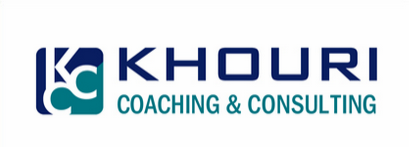This edition of the blog is co-authored with Katrina Pugh.
Let's talk about knowledge management - the practices used in an organization to identify, create, represent, distribute, and enable the adoption of insights and experiences (Wikipedia). In short, this amounts to finding or sharing knowledge easily. There are three key knowledge management imperatives for executives: (1) Recognize that your job is knowledge; (2) Actively participate in professional communities to expand your brain bank outside your firm; and (3) Create an environment that encourages active curiosity.
Your Job: Many scholars have pointed out that technology professionals of the 21st century are competing on their responsiveness to market signals, their ability to leverage partners' knowledge, and their ability to create a stimulating environment for their staff. As a leader, your job is knowledge. It is about making sure that information is available for you and your team to make decisions, produce, and innovate efficiently. Let's walk through a simple case study to emphasize how important this concept is. For example, say, one of your objectives is hiring an effective team. You are hiring someone that has skills that you are lacking, e.g., a database administrator, or DBA. You need this skill set on your team to help you innovate in your area. You ask a peer who has hired a DBA recently, "What do you look for in a DBA?" He provides you with some tips on DBA qualifications. Now, you want to record this information for your later use, and for other hiring managers within your organization. As you do this, contextual knowledge is very important. What is unique about your conversation (for example, time, date, company situation, your sense of how conditions differ in your world from your peer's)? Contextual knowledge like this will help future knowledge-seekers identify what part is applicable to their situation. Capturing this knowledge is critical and a key element of your role as a leader. An effective leader is not only thinking about today's issues but also strategically setting the stage for the future. Today's knowledge is often critical to the success of tomorrow's decisions and actions.
Your Community: Today, average tenure in a company has dropped considerably, from 10-20 years in the 70s, to approximately 5 years in the 2000s. This implies that over the course of your career you are likely to have more than 8 jobs with as many companies. Increasingly, leaders are aligning more with their professions than their companies. Your ability to stay employable (and to keep an identity from job to job) is a function of the strength of your external professional community. An external professional community provides you with a connection to your peers and is a valuable source of knowledge. For example, there exist groups of technology leaders, developers' forums, and quality engineers. Seek out the relevant professional community for you and join. Or in the event there is not a community in place, consider creating one. Returning to our example, your professional community gives you an instant sounding board. You can poll your Tech Execs community distribution list for their experiences in hiring DBAs. Emails are likely to come in with sample job descriptions and someone may even recommend a potential candidate.
Your Team: Web 2.0 technology pundits claim that you no longer need documentation, because, with our ever-present social networks, it is easy to get whatever you need by Googling or emailing requests to your network. We heartily support networks, but we see limitations as well. The downside of not collecting and documenting the critical knowledge of your own experts and teams is losing context. Your online community represents many contexts (not necessarily yours!), and sometimes your request (say, for a DBA job description) comes up dry. You just cannot match the incisiveness of knowledge that comes from interacting directly with an expert, and asking him or her about their context ("Why do you think that worked here?"). Take responsibility for your team's memory. Where the knowledge matters, your team needs the discipline to elicit it, publish it, and get it into circulation. Curiosity is a virtue. So is memory. Create incentives for your team to value curiosity and contribute to shared memory. As we work together, so we discover and share collective knowledge.
Don's Coaching Questions:
- What are you doing to preserve and leverage your organization's knowledge?
- How are you using your professional communities to exchange expert information?
- How welcoming is your culture to curiosity and memory?
All our best,
Don Khouri and Kate Pugh
don@khouricc.com http://www.khouricc.com/
Don Khouri is an Executive Coach helping technology leaders improve productivity. He has over 20 years experience leading technology teams at Fidelity Investments and has a track record of delivering highly complex, firm-wide technology programs from inception to completion, and bulding high-performing global teams. As a technology leader himself, Don is passionate about helping other technolgy leaders improve and deliver. Don holds a B.S. degree in MIS from Babson College, and an MBA from Boston University School of Management. He is a trained leadership coach.
Katrina (Kate) Pugh is a consultant with 15 years of management consulting and 7 years of industry experience in the healthcare, energy, and financial services sectors. Formerly in leadership positions with IBM, Fidelity, JPMorgan, and Intel Corporation, she specializes in strategy, organizational change and multi-stakeholder alignment. Kate has an MS/MBA in Information Technology and Business Transformation from the MIT Sloan School of Management, a BA in Economics from Williams College, and is a professional project manager and facilitator. (katepugh@alum.mit.edu)


